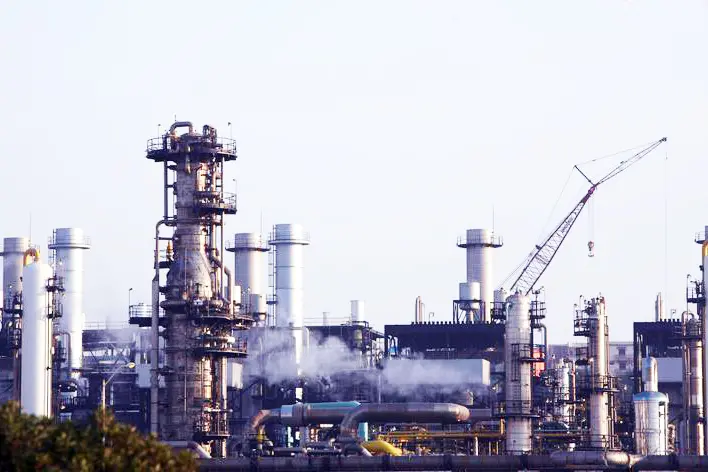PHOTO
LONDON/DUBAI - Algeria has floated an idea of increasing an oil supply cut by OPEC and its allies in the second half of 2019 as demand falters, OPEC sources said, although rolling over current output curbs is still the most likely scenario.
Oil LCOc1 has tumbled from a 2019 peak above $75 a barrel in April to $61 a barrel now on concerns about weakening demand due to a U.S.-China trade dispute and an economic slowdown, raising alarm among some oil exporters.
The Organization of the Petroleum Exporting Countries plus Russia and other producers, an alliance known as OPEC+, have implemented a deal since Jan. 1 to cut output by 1.2 million barrels per day (bpd).
The pact ends this month and the group meets in coming weeks to decide their next move, which sources said would most likely involve rolling over the existing cuts.
But four OPEC sources familiar with the matter said Algeria had put forward the idea of increasing the cut to 1.8 million bpd. Two of the sources, both OPEC delegates, said the idea was not a concrete proposal and was not being discussed formally.
"It is just thinking aloud about what to do in case trade tensions are exacerbated with potentially huge adverse impacts on the world economy, and thus oil demand," said one of the sources familiar with the matter.
The outcome of a possible summit between U.S. President Donald Trump and Chinese President Xi Jinping at the G-20 summit in Japan expected on June 28 would be key to determining the fate of the Algerian idea, the source added.
The meeting of the world's two largest consumers would give OPEC some idea about any "softening of tone or exacerbation of trade tensions," the source said.
The source said OPEC members "are listening with interest", when asked if the idea of a deeper cut was gathering support.
Before the latest downturn in prices which steepened in late May, Saudi Arabia and Russia were discussing two main scenarios for increasing output from the second half of 2019, sources told Reuters last month.
Several OPEC sources said the most likely scenario now was keeping the production cut steady in the second half of 2019.
"Now all the talk among OPEC is a rollover," a second source said, adding that "there is no official proposal, just discussions" of the idea for a larger cut.
Saudi Energy Minister Khalid al-Falih said on Friday OPEC was close to agreeing to extend a pact on cutting oil supplies beyond June, although more talks were still needed with the non-OPEC countries that were also part of the deal.
Russia has been under pressure from its domestic oil firms to let them pump more.
OPEC and its allies still have to decide when to hold their meeting. It was scheduled for June 25-26 but Russia proposed moving it to early July, an idea opposed by Iran and others.
OPEC sources said the lack of a decision was creating a headache for officials at the group's Vienna headquarters responsible for arranging security and other arrangements.
(Reporting by Ahmad Ghaddar and Alex Lawler in London and Rania El Gamal in Dubai Additional reporting by Dmitry Zhdannikov Editing by Dmitri Zhdannikov and Edmund Blair) ((alex.lawler@thomsonreuters.com; +44 207 542 4087; Reuters Messaging: alex.lawler.reuters.com@reuters.net))





















